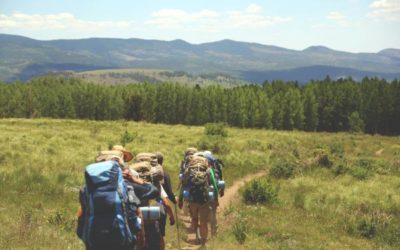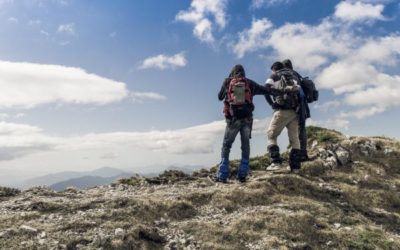Over the years as Wilderness Ministry Institute has worked with churches and individuals interested in developing wilderness ministries in their own communities, we’ve discovered that a lot of leaders are asking a lot of the same questions. In this series How to Start a Wilderness Ministry: Top 20 Questions, we want to take a few moments to respond to some of the most common questions we’re asked, which will hopefully be of help and encouragement to you in your journey of developing transformational wilderness ministries.
What are the first steps to take toward starting a wilderness ministry?
Sometimes this is the question posed by people at the end of a vision trip or from somebody who hears about another church with a wilderness program who becomes inspired to start something similar in their own church.
The temptation when the enthusiasm level is high is to start thinking about what activities to include in your outdoor ministry, or to get out a map and start planning a hiking route. For some people they start thinking about logistics and how many backpacks and sleeping bags they’ll need to scrounge up to make it work. I love this enthusiasm and if I’m honest, those are some of the questions my mind gravitates towards when I start thinking about new ideas, or new places to invest.
Over time, however, I’ve learned a really important lesson. Healthy leaders produce healthy student ministries, and healthy student ministries produce healthy wilderness ministries.
Don’t worry about gear. Worry about this first:
When I was younger, I would automatically start asking about maps, and gear, and all of the exciting bits. Now I start by asking questions like this: What is your Church like? How healthy is your leadership team? How is your relationship with Christ? How is your relationship with your wife and your kids? What are the strengths and weaknesses of your student ministry? How would a wilderness ministry strengthen what is already being done?
Why do I start there? Because if a church doesn’t currently have a strong student ministry rooted in Christ that is making disciples, then it is unlikely that the wilderness ministry will flourish or be sustainable. If the youth ministry is focused on events and providing exciting and entertaining activities, and if the wilderness ministry will be seen as another exciting activity to add to the mix then my experience tells me that there is more foundational work that needs to be done theologically and relationally to help build a base for a meaningful and impactful long term wilderness ministry.
How are your roots?
This might seem arcane, or even counterintuitive so let me suggest a biblical metaphor to help us think about why we want to start with the health of the leaders and the student ministry the wilderness ministry will be serving.
In many, many places, trees and vines are used in scripture as a powerful metaphor for the Christian life, and also for what a meaningful ministry will look like. (Psalm 1, John 15:1-8, Matt. 7:15-20, Matt. 13, etc.)

Photo by Kiriakos Verros on Unsplash
A consistent thread through these passages, and many others, is that the roots are critical to the life and health of the plant. In a similar way, it is critical to have good soil in which any ministry is being planted, including a wilderness ministry. If you keep your roots healthy, God will grow the plant and provide all the leaders, gear, maps, etc. that you need next.
Reflection
- How would you evaluate your personal spiritual health? Ask yourself all of the questions in this blog post.
- How would you evaluate the health of your church’s student ministry? If you need help, here are some practical tools:
18 Questions to Keep Student Ministry Leaders on Mission
Surveys for Student Feedback
Youth Ministry Evaluation - How do you see the wilderness ministry you want to start helping accomplish spiritual health for others? What would you say are the “things” your ministry needs most to do so?
Joel Vermillion is the Director of Wilderness Ministry Institute, an organization that facilitates training to develop outdoor leaders who are committed to local relational youth work, who are humble in the heart, and who will excel in the skills of safely and effectively introducing young people to Jesus Christ through outdoor adventure. You can find upcoming training on the WMI website.



